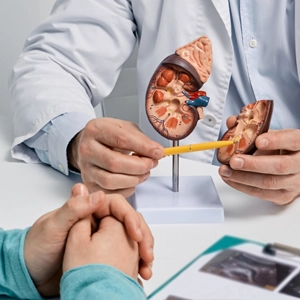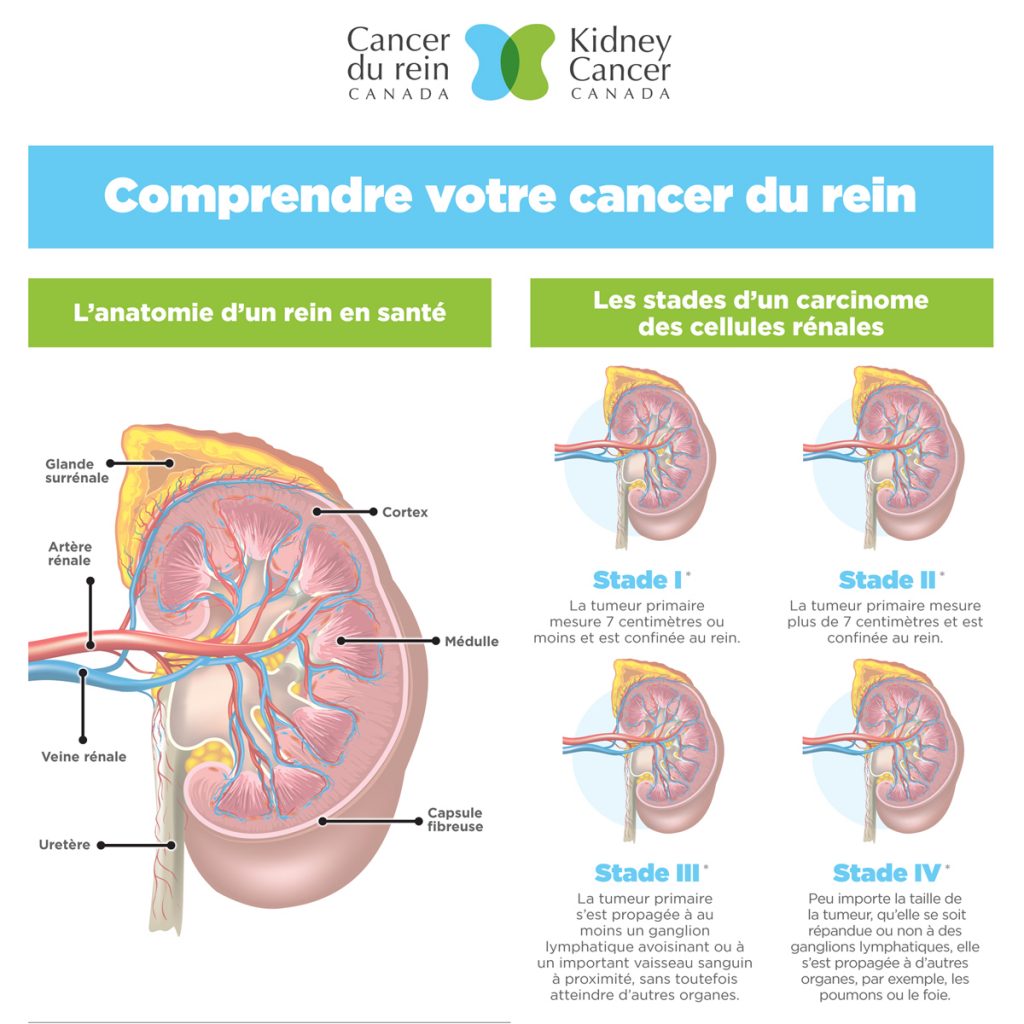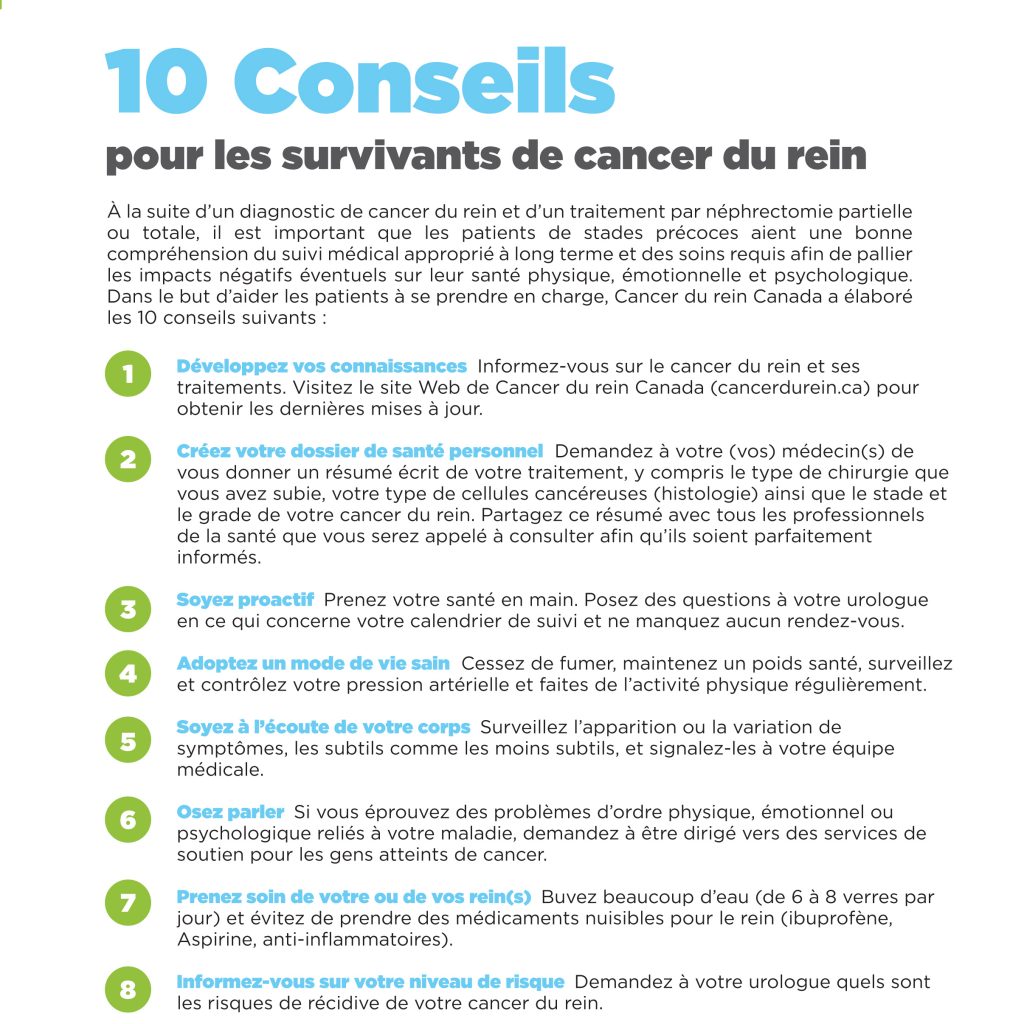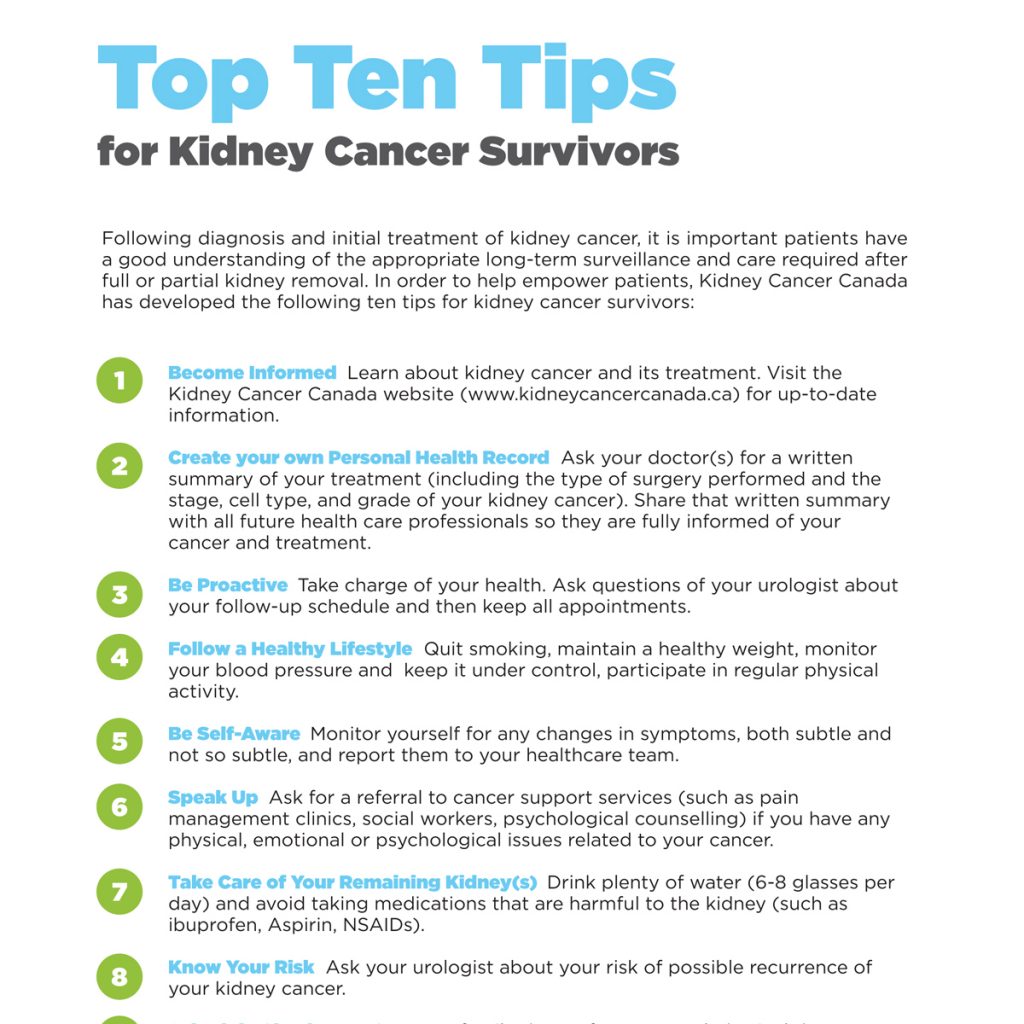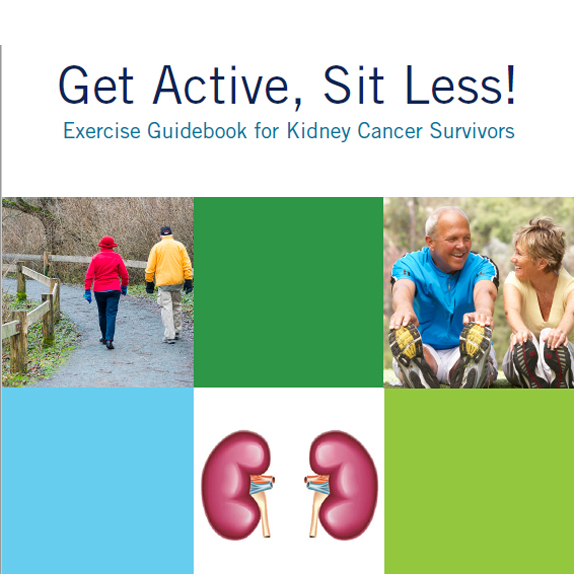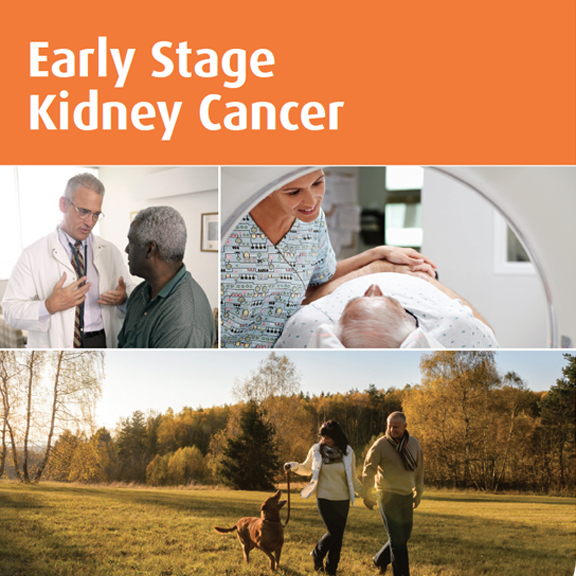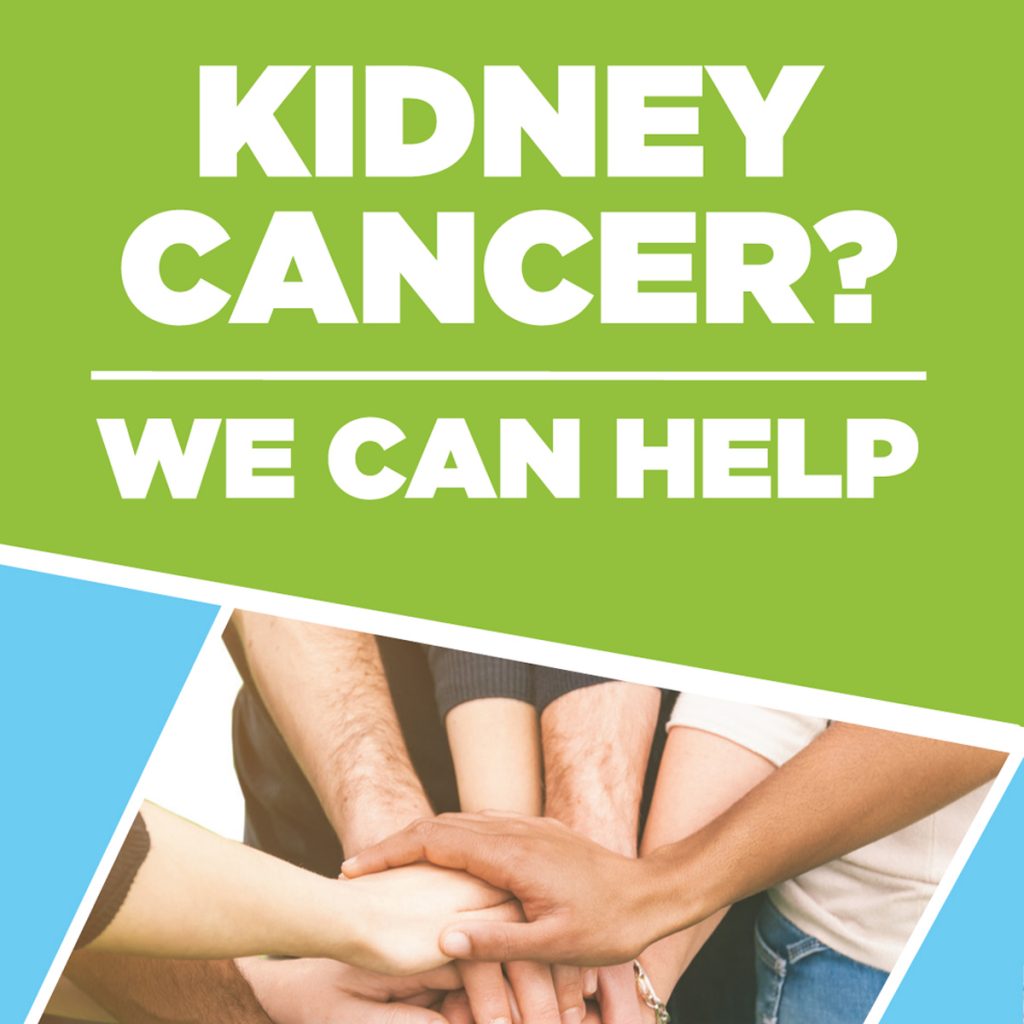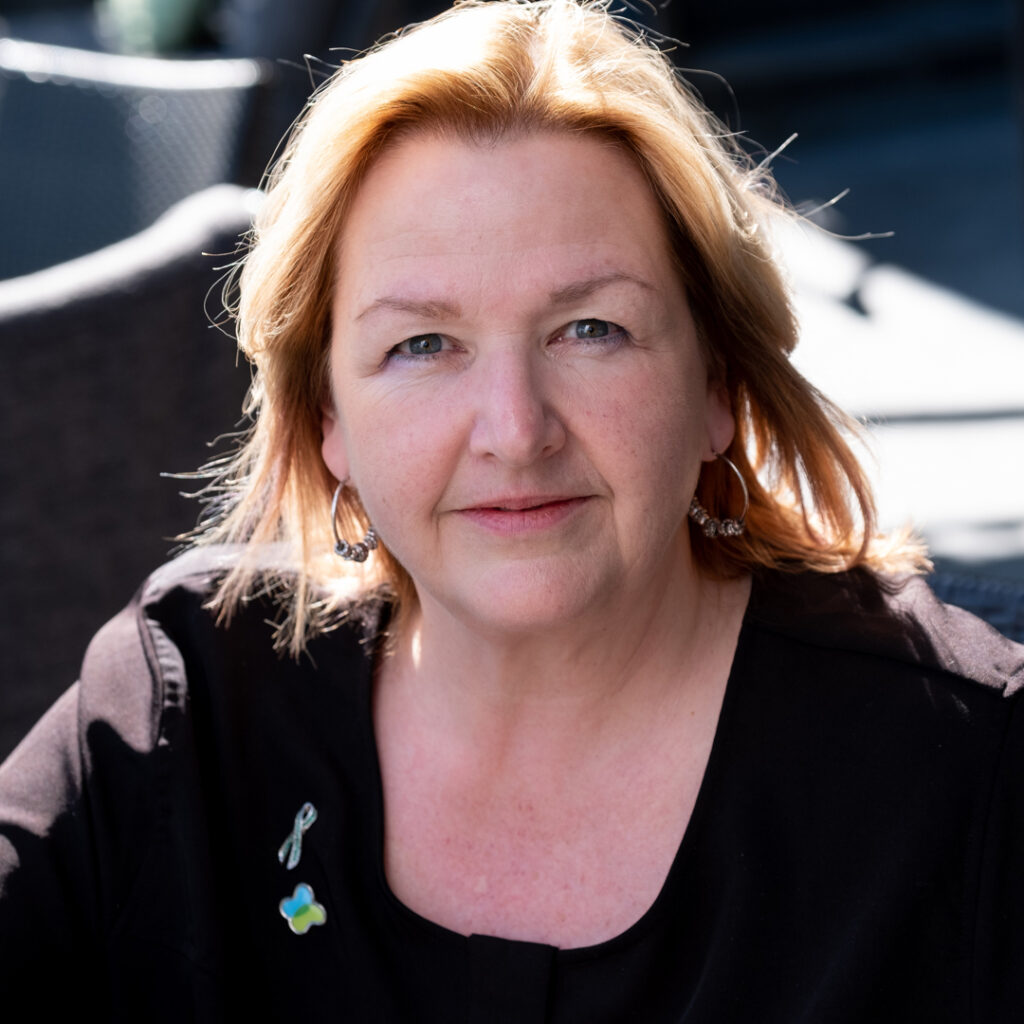
Highlights from the ASCO 2020 Virtual Scientific Programme
Source: International Kidney Cancer Coalition (IKCC)
As a result of the COVID-19 pandemic, this year’s American Society of Clinical Oncology (ASCO) Annual Meeting was held virtually from 29-31 May 2020. The virtual presentations are available to view on the ASCO website. The International Kidney Cancer Coalition (IKCC) attended the virtual scientific programme to keep abreast of the latest advances in the care and treatment of people with kidney cancer.
Please note: The following summary was prepared by patient advocates for the benefit of patient organisations around the world who focus on kidney cancer. While this summary has been medically reviewed, the information contained herein is based upon public data shared at this meeting and is not intended to be exhaustive, or act as medical advice. Patients should speak to their doctor about their own care and treatment.
Savolitinib has potential for the treatment of papillary RCC
Toni K Choueiri, MD, from the Dana-Farber Cancer Institute in Boston, USA presented the results from a study investigating the tyrosine kinase inhibitor (TKI) savolitinib as a potential treatment for people with papillary renal cell carcinoma (pRCC).
Papillary RCC accounts for approximately 15% of all RCC, making it the most common type of non-clear cell RCC. Savolitinib is a tyrosine kinase inhibitor that is highly targeted to MET, a receptor which is overactive in some cancer cells. Some patients with pRCC have mutations in the MET receptor gene that make it inappropriately active. This study looked only at patients whose tumours had mutations in the MET gene because it was thought that their tumours might respond to treatment with savolitinib.
A total of 254 pRCC patients were screened for treatment, but only 60 were found to have the abnormal MET gene. These patients were randomised to savolitinib (33 patients) or another TKI, sunitinib (27 patients). Median progression-free survival (i.e. the time it takes for the cancer to get worse) for patients in the savolitinib group was 7.0 months compared to 5.6 months for patients in the sunitinib group. More than half of the patients taking savolitinib were alive at the end of the follow-up period, meaning that median overall survival could not be calculated for this group of patients. The median overall survival for patients taking sunitinib was 13.2 months.
Patients on savolitinib also experienced fewer serious or life-threatening adverse events and needed fewer dose modifications than patients on sunitinib. Severe or life-threatening adverse events occurred in 42% of patients on savolitinib compared to 81% in the sunitinib group.
Because the response rate (defined as at least 30% shrinkage of the tumour) was low (9 patients in the savolitinib group, 2 patients in the sunitinib group), it was not possible to calculate the median duration of response for the patients in this study.
The fact that this study only had small numbers of patients and was stopped early make it difficult to draw any firm conclusions from these results. Further research is needed with savolitinib and pRCC patients because some of the initial data look somewhat promising.
Exciting results for the treatment of hereditary kidney cancer
Two studies investigating treatments for hereditary forms of kidney cancer were presented at ASCO this year.
HEREDITARY LEIOMYOMATOSIS AND PAPILLARY RENAL CELL CANCER (HLRCC)
In the first presentation, results from a phase II study of bevacizumab and erlotinib in people with advanced hereditary leiomyomatosis and papillary renal cell cancer (HLRCC) or sporadic (i.e. non-hereditary) papillary RCC were discussed. This study included 83 patients with papillary RCC. Half of the patients had HLRCC, a hereditary disorder associated with excess fibroids in women, small benign skin tumours called leiomyomas, and aggressive kidney cancers. Half of the patients had non-hereditary papillary RCC. During the study patients were treated with a combination of erlotinib, a targeted therapy, plus bevacizumab, an infusion which targets VEGF, a factor responsible for blood vessel growth.
In patients with HLRCC the objective response rate was 64% and 37% in patients with non-hereditary papillary RCC. Median progression-free survival was 21.1 months in the HLRCC patients and 8.7 months in patients with non-hereditary papillary RCC.
This is the largest prospective study of patients with HLRCC and shows that the combination of bevacizumab and erlotinib is very active for patients with papillary RCC, especially those with fumarate dehydrogenase (FH) deficiency, as in HLRCC. For patients who respond, especially those with HLRCC, the responses are durable with a median progression-free survival more than 21 months.
VON-HIPPEL-LINDAU (VHL) DISEASE
In another virtual talk, results from a phase II international trial led by researchers at MD Anderson Cancer Center in Houston, USA were presented. The study enrolled 61 patients with a diagnosis of von-Hippel-Lindau (VHL) disease, a disorder that causes multiple kidney cancers in both kidneys, cancers in the pancreas, and benign tumours in the eye, brain, spine, and adrenal glands. These patients had no prior cancer drug treatments, non-metastatic RCC tumours, and were in reasonably good health. Patients were treated with a novel hypoxia inducible factor (HIF)-2 alpha inhibitor (MK-6482).
The objective response rate was 27.9%, 86.9% of patients had a decrease in the size of their tumours, and the median time to response was 5.5 months. No patients experienced disease progression while on treatment and 58 patients (95.1%) remain on treatment.
MK-6482 was well tolerated and most side effects were mild or moderate in nature. Less than 10% of patients had a severe adverse event and there were no life-threatening side effects.
“Patients with von Hippel-Lindau disease are at risk of developing several types of cancer and other tumours, and there are currently no approved therapies,” said Dr Eric Jonasch, the lead investigator “We are encouraged by the results of this clinical trial and look forward to seeing further study of MK-6482 as we work to make this treatment option available for patients with VHL disease.” These further studies include testing MK-6482 to see if it can prevent the development of new tumours in patients with VHL disease.
Two is better than one?
Combination therapies were the main topic of interest at ASCO 2020, with the presentation of updated results from some ongoing studies and results from some new studies.
KEYNOTE-426
KEYNOTE-426 study of the immune checkpoint inhibitor, pembrolizumab plus the targeted therapy, axitinib versus sunitinib as first-line treatment for advanced renal cell carcinoma (RCC) continues to show improved efficacy in the treatment of advanced RCC compared with sunitinib as a first-line treatment.
“The phase 3 trial compared combination axitinib plus pembrolizumab to one of the standards of care, sunitinib, and found people lived longer if they started with the combination treatment,” said Dr Elizabeth Plimack, the lead investigator. The combination of pembrolizumab and axitinib shrinks tumours more reliably than sunitinib, and those patients whose tumours shrank the most lived the longest.
More follow-up data from KEYNOTE-426 were presented at the ASCO virtual meeting to determine how the pembrolizumab/axitinib combination helps patients survive. The combination benefitted intermediate- and poor-risk patients the most, the group of patients with the most aggressive cancer. Patients who had good risk did not benefit from this combination.
Two studies were presented during ASCO 2020 to investigate whether initial treatment of metastatic RCC patients with the immune checkpoint inhibitor, nivolumab followed by the addition of a second immune checkpoint inhibitor, ipilimumab for patients with either stable or progressive disease would be as effective as upfront combination therapy:
OMINVORE
The OMNIVORE study tested the addition of up to two cycles of ipilimumab in people who didn’t respond to nivolumab alone. Researchers studied 83 patients. Treatment with nivolumab resulted in a partial response in 11% of patients. Adding ipilimumab only resulted in an additional 4% of patients having a partial response. These results suggest that delaying treatment with ipilimumab decreased the overall efficacy of the nivolumab plus ipilimumab combination, and that upfront treatment with the combination is more effective.
HCRN GU16-260
The HCRN GU16-260 study was similar to the OMNIVORE study, but up to four doses of ipilimumab were given to patients with stable or progressive disease instead of two. There were 123 patients with metastatic RCC in the HCRN GU16-260 study. Overall response rate was 29.3% with nivolumab alone, with 4.3% of patients having a complete response, and 30.7% of patients with progressive disease. Of the 30 patients who went on to have the nivolumab plus ipilimumab combination, 11% of patients had a partial response and 59% had progressive disease. This study provided further evidence that delayed ipilimumab may not be as effective as upfront combination therapy.
FRACTION-RCC
Results from the phase II FRACTION-RCC clinical trial to assess the nivolumab plus ipilimumab combination in previously treated advanced RCC patients were presented at ASCO 2020. The study looked at 46 patients with previously treated RCC that was not responding to treatment with immune checkpoint inhibitor (PD-1). These patients were treated with the ipilimumab/nivolumab combination. The objective response rate was 15.2%; none of the patients had a complete response to treatment, and 7 patients had a partial response.
These data suggest that the combination of nivolumab and ipilimumab results in very modest responses in patients with previously treated advanced RCC, including those who had progression of their cancer when taking immune checkpoint inhibitor therapy. The data also emphasise that if the combination of nivolumab plus ipilimumab be used, it should ideally be given as a first-line therapy.
COMBINATION OF LENVATININB PLUS PEMBROLIZUMAB
Results from a phase II trial of a combination of lenvatinib (targeted therapy) plus pembrolizumab (immune checkpoint inhibitor) for the treatment of metastatic RCC, which was not responding to treatment with immunotherapy, were presented during ASCO 2020. In total, 104 patients with metastatic RCC who were no longer responding to treatment with immunotherapy were included in the study. All patients were treated with the combination of lenvatinib and pembrolizumab. The objective response rate was 51%, progression-free survival was 11.7 months, and median duration of response was 9.9 months.
This study provided some very strong and encouraging data on the lenvatinib plus pembrolizumab combination as a second-line option for patients with metastatic RCC who have progressed on immunotherapy. The study also supports further development of this combination as a later-line therapy in advanced RCC.
Biomarkers for immunotherapy treatment for advanced RCC
Biomarkers enable doctors to predict which patients will respond to which drugs and have an important role in many cancers. However, a good biomarker has not yet been found for RCC. The fundamental issue in the biology of metastatic RCC is that a suitable genetic mutation that ‘drives’ the development of RCC has not yet been discovered.
There have been many attempts to develop an immunotherapy biomarker for RCC, but, unfortunately, there have been many challenges, including tumour heterogeneity between patients and within individual tumours, availability of biopsy samples, and variability in testing.
Two papers presented during the ASCO 2020 virtual meeting summarise the work done to determine immunotherapy biomarkers for advanced RCC. Both papers conclude that immunotherapy biomarkers in advanced RCC have not been shown to be clinically useful and further research is needed to identify the genetic mutations involved in RCC tumours.
ACKNOWLEGMENTS:
Medical Reviewers:
Dr Rachel Giles (NL)
Dr Micheal Jewett (CA)
Dr Eric Jonasch (USA)
Medical Writer:
Dr Sharon Deveson Kell (UK)
June 19,2020


